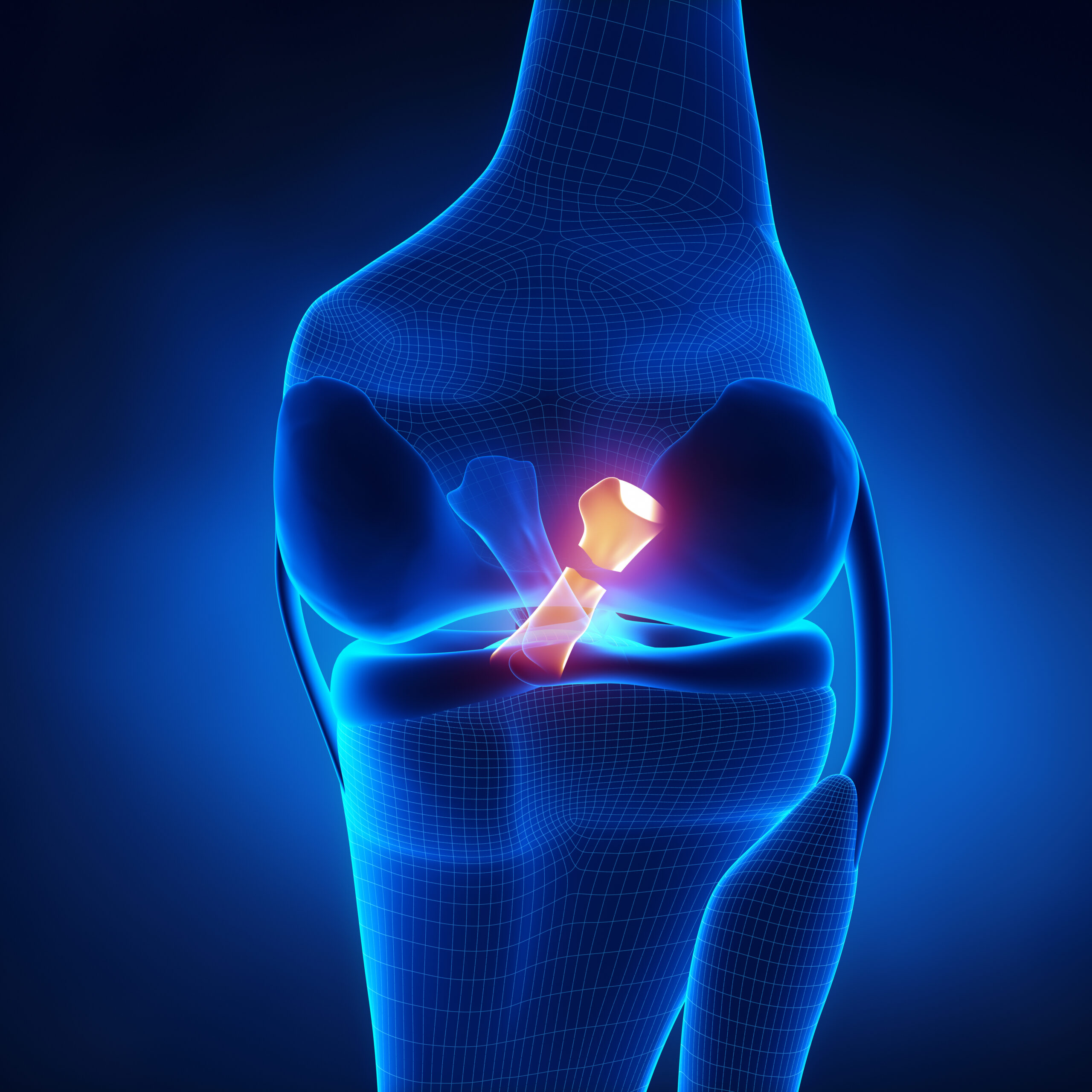ACL Tear Specialist

Are you an athlete who participates in sports that involve jumping or quick stopping? If so, you may be at risk of tearing your anterior cruciate ligament, or ACL. An ACL tear is one of the most common injuries suffered by athletes. ACL tear specialist, Doctor James Mazzara provides diagnosis and both surgical and nonsurgical treatment options for patients in Manchester, South Windsor, Enfield, Glastonbury and surrounding Hartford communities who have suffered a torn ACL. Contact Dr. Mazzara’s team today!
ACL Injury of the knee
What is an ACL?
The anterior cruciate ligament (ACL) is one of four major ligaments that stabilize the knee. The ACL runs through the center of the knee, from the front of the tibia (shin bone) to the back of the femur (leg bone.) The ACL, like all ligaments, provides stability to the joint and functions like an internal brace, connecting one bone to another (the femur to the tibia). The anterior cruciate ligament forms an “X” in the knee with a similar ligament called the posterior cruciate ligament (PCL.) The PCL is bigger and stronger than the ACL and not as susceptible to injury as the anterior cruciate ligament. Dr. James Mazzara, orthopedic knee specialists serving Manchester, South Windsor, Enfield, Glastonbury and surrounding Hartford communities, has extensive experience treating ACL and other ligament injuries in the knee.
What is an ACL Injury and How Does it Occur?
ACL injuries range in severity from a small sprain, partial tear or stretching of the ligament, to a complete tear. ACL injuries are often seen in athletes who participate in sports that cause sudden stops or changes in direction. Contact sports and a direct blow to the knee can also cause a ligament injury. An injury occurs when the ligament is stretched beyond its normal range; as when the tibia slips out from under the femur. Women and soccer players are at a particularly high risk for anterior cruciate ligament injury as well as those involved in skiing, football, basketball, tennis or gymnastics.
What are the Symptoms of a Torn ACL?
An ACL tear is usually the result of a non-contact twisting injury to the knee, although it may be from a direct trauma as well. People who experience an anterior cruciate ligament injury often report the following symptoms:
- Pain, often sudden and severe
- A popping sound often heard at the time of injury
- Swelling, bruising, inflammation and redness
- Limited range of motion due to knee swelling and tightness
- Knee instability – the feeling of it “giving way”
Following the injury and the pop in the knee, swelling always occurs, usually within hours of the injury. This is the result of bleeding of the torn ligament into the knee. Other simultaneous injuries may also include other ligament tears, meniscus tear, other cartilage injuries and bone contusions or fractures.
How is an ACL Injury Diagnosed?
During your orthopedic consultation with Dr. Mazzara, a physical examination of the injured knee will be performed. He will inquire about the events leading up to the injury, as well as checking range of motion, degree of swelling and extent of pain. Dr. Mazzara will often use an x-ray to check for bone involvement, which may include fractures or bone contusions, as well as an MRI to evaluate the ligaments, tendons and cartilage.
How is a Torn ACL Treated?
Depending on the severity and symptoms of the ACL injury, Dr. Mazzara may suggest either a surgical or non-surgical treatment. Not all ACL injuries require surgery; a minor sprain may heal on its own with proper rest and therapeutic knee exercises. Partial or complete tears however will often require surgery.
Does an ACL Injury Require Surgery?
If the ACL injury does not cause instability in the knee joint, or if the patient does not require use of their ACL for sports and daily activities, physical therapy may be enough to heal the joint. Dr. Mazzara suggests the well-known treatment called RICE; Rest, Ice, Compression and Elevation. He may also prescribe a non-steroidal anti-inflammatory medicine to reduce inflammation and pain from the injury, and promote healing.
What is the Surgical Treatment of an ACL?
More severe tears with knee instability require surgical treatment to restore normal knee function. Dr. Mazzara is skilled at performing ACL arthroscopic surgery, using a small camera called and arthroscope and small instruments to repair the damage inside the knee. An ACL reconstruction removes damaged fragments of the torn ACL and replaces it with a soft tissue called a graft. There are two types of graft options available for ACL reconstruction:
- Autograft uses a substitute ligament from the patient’s own body. Common grafts may include the patellar tendon and hamstring tendon. Dr. Mazzara will usually recommend using the quadriceps tendon to autograft because studies have shown that it is not associated with any of the disadvantages of other autografts such as knee weakness (as in the case of the hamstring tendon) or pain from softening of the cartilage on the patella called chondromalacia (as in the case of the patellar tendon).
- Allograft; tissue taken from a donor or cadaver. Allografts offer faster initial recovery and lower surgical morbidity. However, some clinical studies have shown a higher risk in re-rupture, especially in younger patients, but provide excellent results in most other patients.
What is the Recovery Time After ACL Reconstruction?
The goal of ACL treatment is to reduce swelling and restore motion to the knee joint. Patients are usually able to bear weight on the knee, while wearing a brace, immediately after surgery. Returning to work or school can happen in as little as 5-10 days post-surgery. Approximately 5 days after surgical reconstruction, physical therapy will be started with range of motion exercises, then strengthening, to build the supporting muscles. A return to sports activities can usually be accomplished around 5-8 months after surgery and based on individual progress.
If you have questions about treatment for an ACL injury or if you have a torn ACL, please contact the orthopedic offices of Dr. James Mazzara, knee specialist in Manchester, South Windsor, Enfield, Glastonbury and surrounding Hartford communities.
